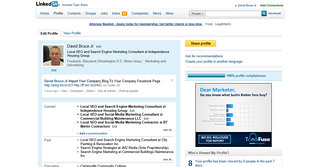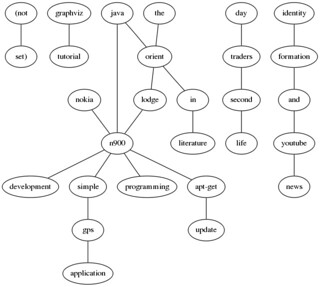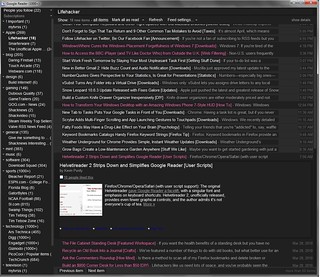By Rick Fromme
Looking to launch or further your career in the health care industry? You may be in luck. The U.S. Bureau of Labor Statistics estimates
that more than 25% of the new jobs created nationwide between 2013 and 2018
will be in the health care. There are millions of people working in some
capacity in health
care, whether it’s in hospitals, doctors’ offices, clinics,
hospices, other facilities or even doing home health care. Similarly there are an additional 1.1 million
industry-supporting jobs, such as in medical sales – pharmaceutical, biotech,
medical devices and other technologies. While the overall projection for
positions in the industry remain positive, competition for lucrative positions
remains tough.
| resumes (Photo credit: realisticresumes) |
Unless you’re fortunate to inherit a family business in the
health care industry, more than likely you’re going to need to a résumé that’s
spot on, guaranteed to get you invited to the all-important job interview. It’s an advertisement of your skills,
experience, knowledge and education presented in their most favorable light.
Do an Online Search
Do an online search and/or go to your local bookstore and you’ll find hundreds of articles and periodicals pertaining to how to write a good résumé. Bob McIntosh, an established career trainer, empathizes with applicants when he writes: “Do you heed the advice of professional résumé writers, recrui
| David Bruce Jr LinkedIn Profile (Photo credit: Frederick Md Publicity) |
While not wanting to be perceived as flippant in saying “Who
the heck knows?” the truth is, it’s the person reviewing the résumé s the who
decides to invite you in for an interview. Or not. Short of using computers to search for
delineated keywords, résumé reviewers can be somewhat subjective when perusing
through hundreds of them.
It takes a medical recruiter or hiring manager reading a résumé
about 12 seconds or less to know if they want to read more or move on to the
next candidate. Hence, your résumé, at a minimum, needs to be concise,
easy-to-read, error-free and impressive. No problem, right?
Always post your résumé
whenever possible because many recruiters rely on résumé keyword search to
source new candidates. It should contain very specific keywords that reflect
your specialties, job functions and, if applying for a job in medical sales,
specific product categories sold. Similarly, a résumé that doesn’t include
industry buzzwords won’t garner an interview and will likely end up in the
trash. Recruiters want to see you know what’s trending in the health care
field, what industry keywords mean, and why they’re important. Know and use
them. But don’t overdo it, either.
Recruiters Store Résumés in Databases
Recruiters store résumés in databases and use keywords to
find potential applicants. A résumé that doesn’t include relevant keywords is
essentially non-existent because it won’t
show up when the
recruiters do a keyword search. Health care resumes should
have relevant keywords spangled throughout. Use language that is pertinent to
the desired position.
| Graphviz Keywords (Photo credit: Aldon) |
Don’t just list your past jobs – detail them: A bullet point
list of the jobs you’ve held doesn’t give
a hiring manager enough information to make your resume stand out.
Whenever possible, you want to show quantifiable results with numbers, dollars
and percentages. Short of that, you want to highlight accomplishments you achieved while at each job, not simply
list the duties you performed.
Keep it concise: Remember that aforementioned 12-second
figure? That’s why it’s critical your résumé is succinctly written, logically
formatted and free of distracting and unnecessary extras such as graphs and
graphics. Include only the most relevant information and keep your résumé
to two pages, maximum, providing you have the experience and
accomplishments to back it up. Most pundits say information such as personal
and professional references should not be included in your résumé. Along with
your contact information, it should reflect two concepts: your relevant
experience with highlighted accomplishments and education.
Recruiters usually receive hundreds of résumés for most
positions. How, within just a few seconds, do you make yours stand out? One way
is by having a compelling summary paragraph or objective at the top of the
first page. The summary paragraph should be thought of as your sales pitch. If
the summary paragraph isn’t enticing, the recruiter may not even continue
reading the rest of the page. The summary paragraph should highlight your
education/certifications, work experience, and accomplishments. Specialized
training, medical volunteer work, and awards are examples of items that can
make your stand out.
| Modified Google Reader (Photo credit: mattjb) |
While it certainly takes more work for the applicant, most recruiters
recommend tailoring your résumé to each job to which you’re applying. Employers
don’t want a one-size-fits-all résumé
that doesn’t address their needs or follow the job description. Health
care professionals should customize their résumé for each job; not doing so is
a mistake. For example, a résumé for a hospital opening shouldn’t be the same as one for a position
at an orthopedic surgeon’s practice.
Things to Consider
Some résumé experts
recommend including a one-line description of each company you worked for.
Whether it was a small, specialized firm or a major international conglomerate,
it may matter to a prospective employer.
Others maintain that if you were in medical sales, you should detail what you were selling and to whom,
particularly if you’ve served a well-known client.
| resume (Photo credit: ruSh.Me) |
objective statements such as “Seeking a position in a progressive company where I can utilize my journalism skills.”
Your résumé needs to show relevance. Employers are interested
in the past 10 or 15 years of your work history; in some cases less. Age
discrimination may also be a concern, so don’t show all 25-30 years of your
work life.
A poorly formatted résumé is almost sure to end up in the
discard pile. Hiring managers need to be able to quickly scan over a resume to
identify if the job seeker is a good fit. If the résumé is difficult to read,
it won’t be. A good résumé has a consistent format throughout, has bold
headers, and is usually in chronological order – unless it’s a functional
resume. Ensure your job history, specialized training and education are clearly
formatted and are easily discernable.
A mistake many new job seekers make is padding their résumé
to make it longer. Health care recruiters don’t want to know you once worked at
McDonald’s. If the information isn’t relevant to the position you’re applying,
don’t include it. It’s better to have a short résumé than to have one with
irrelevant information. If you lack job experience, you may highlight your
education, academic achievements and/or training, or relevant volunteer
experience.
It’s helpful to look at résumés of coworkers in similar
fields. Of course, there are myriad examples online. In addition to using your
computer’s spell check tool, it’s a good idea to have several other people read
over your résumé as well, not only for content, but for formatting as well.
A good résumé
functions as a tool and work of art, whereas a poorly constructed résumé can be a wrecking ball and a
masterpiece of self-destruction.
Rick Fromme combines entrepreneurial enthusiasm with an insider's knowledge of the medical industry to co-found MedMasters.com. Both his drive and perspective help provide health care professionals with a superior mechanism with which to communicate, network and market their strengths. Prior to founding MedMasters.com, Rick operated a highly successful medical device distributorship. Other milestones in his 12-year career in the medical industry include a key position at a medical device start-up company that was later sold to the Ethicon Endo division of Johnson & Johnson.You can also reach Rick by connecting with him on Facebook, Twitter, Google+, LinkedIn and Youtube.
Related articles















Writing resumes can be a real pain. Glad I happened upon this article. Thanks.
ReplyDelete